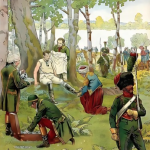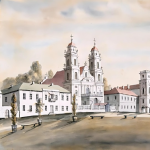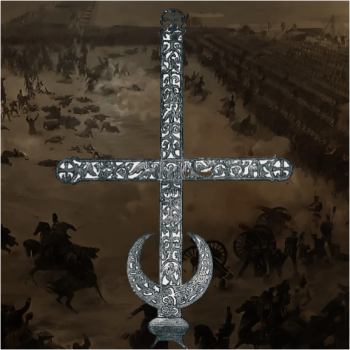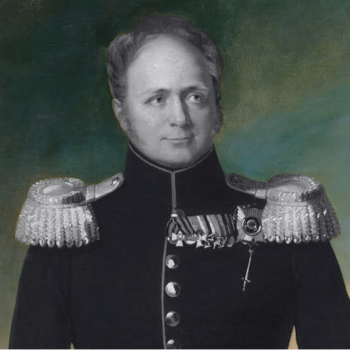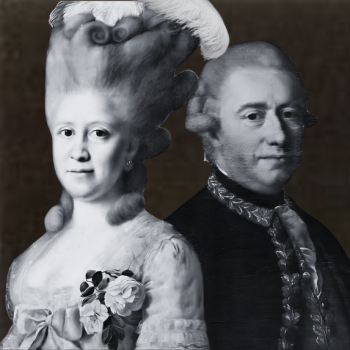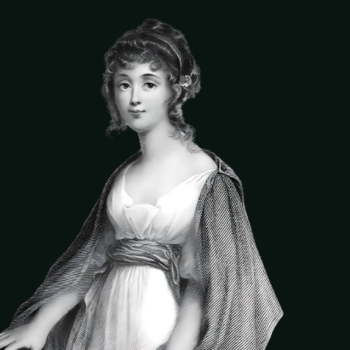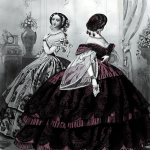A Tournament Of Shadows:
XVIII. Assimilating And Organism
Alexander Pavlovich was sitting alone at the Imperial Palace on November 5, 1809, when de Maisonneuve announced the arrival of the new American Minister at the entrance of his cabinet. When John Quincy Adams entered the room, Alexander Pavlovich rose and approached the American at the entryway.
Born in Braintree, Massachusetts, in 1767, the son of former President, John Adams was no stranger to Russia, nor to the art of diplomacy. When he was eleven he accompanied his father to France when he was sent as a joint commissioner with Benjamin Franklin and Arthur Lee to the court of Versailles. He lived in France for a year and a half, and it was here that he learned the language of the country (and some Latin.) Father and son returned to Boston in August 1779, just when the Massachusetts convention was about to assemble to form a constitution. (Adams’s father was elected a member of that body and drew the original plan of the constitution.) In November 1779 John Adams was sent to Europe again with a commission for negotiating a treaty of commerce with Britain, again taking John Quincy with him. During this trip John Quincy was placed in a school in Amsterdam, and afterward at the University of Leyden. In July 1781 Francis Dana (who had accompanied John Adams to Europe as Secretary to the legation for negotiating peace,) received a commission from Congress to be the minister plenipotentiary to Catherine the Great. John Quincy went with him as his private secretary, spending fourteen months in St. Petersburg. In October 1782 he returned to his father in Holland by way of Sweden, Denmark, Hamburg, and Bremen. He reached the Hague in April 1783, but his father was then in Paris engaged in the negotiations for peace. John Quincy spent four months at the Hague, where he received instruction from C.W.F. Dumas, a Swiss man of letters and “zealous friend to the American cause.” He returned to America, and after six months of studies with a private instructor, acquired sufficient knowledge of the Greek language for admission to Harvard College (where he received his degree in 1787.) He went on to study law and opened his own practice in Boston. Though initially reluctant to become involved with politics, he published a series of essays attacking Edmond-Charles Genêt (who criticized Washington’s position of neutrality during the French Revolution.) In 1794 Washington appointed Adams as the American Ambassador to the Netherlands. In the winter of 1795-1796, Adams was in London, and while there he met his future wife, Louisa Johnson, the daughter of an American merchant. (They married in 1797.) In 1796 Washington made Adams Ambassador to Portugal. Later that year his father became President, and the younger Adams was named Ambassador to Prussia. (His impressions of this time are recorded in his 1804 work, Letters On Silesia.)[1] When he returned to America he resumed his law practice, and in 1802 was elected to the Massachusetts Senate. Unlike other New England Federalists, Adams supported the expansionist policies of Thomas Jefferson (who was then President,) including the Louisiana Purchase. He was the only Federalist in Congress to vote for the Non-Importation Act of 1806. This was a retaliation against British attacks on American shipping during the Napoleonic Wars, especially Britain’s practice of “impressment” (physical coercion for conscription) of American men into the Royal Navy.[2] (It was not very effective.)[3] While still serving in the Senate, in 1806 Adams accepted the post of Boylston Professor of Rhetoric and Oratory at Harvard College.[4] In 1809 President James Madison named him Ambassador to Russia, and on August 5, 1809, Adams and Louisa left their house at the corner of Boylston and Nassau streets in Boston and began the tedious (and uncomfortable) voyage across the Atlantic to St. Petersburg.[5]
“Monsieur, je suis charmé d’avoir le plaisir de vous voir ici,” said Alexander Pavlovich.[6]
Adams presented the Tsar his credential letter and responded in French. “I was charged to add that the President of the United States hopes that His Imperial Majesty will consider this mission as a proof of the President’s respect for His Majesty’s person and character, of his desire to multiply and to strengthen the relations of friendship and Commerce between his Majesty’s Provinces and the United States, and of grateful acknowledgment for the frequent testimonials of good-will which his Majesty on many occasions had given towards the United States.”
“Please assure the President of the United States, that this new addition to the relations between the two countries, gives me great pleasure. In everything that depends upon me, I should be happy to contribute towards increasing the friendly intercourse between our people. Regarding the political relations of Europe, and those unhappy disturbances that agitate its different States, the system of the United States is wise and just; they might rely upon it. I would do nothing to withdraw them from it. That the Continent of Europe is now, in a manner, pacified. The only obstacle to a general pacification is the obstinate adherence of England to a system of maritime pretensions that is neither liberal nor just. The only object now to be obtained by the War is to bring England to reasonable terms on this subject—she can no longer flatter herself with any support for her system upon the Continent.”
Besides the issue of “impressment,” there were other tensions in American and British relations. It had quite a bit to do with how each nation understood itself. The reduction of human behavior to laws of nature that could be expressed in elegant mathematical terms was commonplace among the philosophers of the Enlightenment. The precedent of which was established by the natural scientists of the seventeenth century who reduced all physical phenomena to simple mathematical formulae.[7] As a consequence, in 1798, just around the time that Napoleon had entered Egypt, a British divine named Thomas Robert Malthus published a controversial work titled An Essay On The Principle of Population. (The first American edition was published in 1809, just before Adams left for Russia.)[8] Malthus’s fundamental principle was this: “Population, when unchecked increases in geometric ratio. Subsistence only in an arithmetical ratio.” This effectively inaugurated the debate on the “Population Question.”[9] Who should be permitted to have children? What role did illicit sexuality (particularly female sexuality) play in societal breakdown?[10]
It was also around this time that the word “organism” gained traction among the German philosophers. Kant used it to describe a “total nexus” of mutual relations between all beings, as well as all “subjects.” In other words, “subjects” formed a general part of the greater “organism” of nature, while at the same time representing an individual “organism” itself. Already (around 1750) the word “assimilation” was used among natural scientists to describe the process through which an organized unity differentiated and developed into a multiplicity of interrelated structures that interfaced with the surrounding world in a systematic relationship. Friedrich Schelling would use it to reference the mediating process between “I” and the world, the “assimilation” of the “Not-I” into the “I.” This was published in 1799 in his work, Erster Entwurf Eines Systems Der Naturphilosophie (First Plan Of A System Of The Philosophy Of Nature,) which focused on the “macrocosm” of the “general organism of nature” and the microcosm of the “individual organism.” Schelling’s individual “organism” as represented in the hierarchical system of natural microcosms and macrocosms, was a conception informed by Neoplatonic and Alchemic thoughts (as seen in the writings of Paracelsus, Boehme, etc.,) as well as the mystic cosmology of the Freemasons. Indeed, by the end of the eighteenth century many German philosophers, writers, and naturalists (such as Goethe, Schiller, and Hegel,) likewise influenced by the “occult sciences,” were similarly discussing the microcosm-macrocosm relationship.[11] The German Naturphilosophen believed that everything in nature occurred in the interaction of harmonious opposites; a Hermetic balance maintained by the action of antagonistic forces of attraction and repulsion, and through which all creation and decay took place.[12]
What does this have to do with tensions between America and Britain? Well, in a sense, we might see the “organism” of America coming into its own, emerging as its own being from the “parent” Britain. One could argue that Britain’s policy regarding American territorial expansion out West was a “macrocosmic” allegory of Malthusian population control. They certainly thought it was in their domain to say that the American population was too large. British critics of the United States (such as Thomas Malthus,) in fact, explicitly urged Americans to reduce their family size, which in turn would diminish their demand for Indian territory out West. Adams found it very difficult to contest Malthus’s inferences. Thomas Jefferson once even told Adams that he thought the questions Malthus raised were “unanswerable.”[13] Jefferson answered them anyway. Upon reading Malthus’s work, Jefferson directly contradicted the Malthusian thesis and insisted that there was ample land on the American continent to guarantee its people the freedom to break land for farms and raise families. Indeed, it was believed that one of the ways Americans could show their love of country was by having children for the nation. This emphasis on the power of population was one of the that inhabitants of the young nation could differentiate themselves from both the British and Native Americans.[14] Here we can see the tension.
There was already a pronounced “Anglophobia,” a residue from the American Revolution that lingered for some time. It was feared by some that the British had designs on “re-colonizing” America through manipulation of economy, of industry, and by peopling the Western Frontiers with new British colonies outside the jurisdiction of the original (and newly united) Thirteen Colonies. This anti-British sentiment was put to good use by politicians (who leaned into the conspiracy mythos of the “Illuminati.”) These ideas did not develop in a vacuum, however, and many had a reasonable amount of evidence to come to certain conclusions. Americans were already frustrated with British trade restrictions and were incensed to learn of a possible alliance between the British and the Barbary Pirates (North African slavers.) Before American Independence British treaties protected American ships from the Barbary corsairs, but now the Americans had to fend for themselves. In December 1793, President Washington delivered an address highly critical of British policies. Two weeks later, the Barbary Pirates captured eleven American ships and took more than one hundred crew members as slaves. The direct result was the creation of the United States Navy in 1794. The following February, Canada’s governor-in-chief delivered an inflammatory speech to Native Americans that was widely viewed in America as the catalyst for their attacks on American forces. It was believed that the British were instigating their Native American allies “to ravage [new America] settlements and excite terror in the hearts” of all settlers in the western frontier. Some people even believed that the British were planning an imminent attack from Canada, where it was supposed they were building gunboats and organizing the Native Americans against the United States.[15] It was at this time, after all, that the Shawnee Chief Tecumseh (the Shawnee word for “Comet,”) and his brother, “The Prophet,” were making progress in their efforts at creating an independent and segregated nation for the Native Americans.[16]
Alexander Pavlovich took Adams by the arm and walked to a window opening upon the river, evidently to avoid being overheard. “Austria after abandoning herself to inconsiderate councils and disregarding the advice which he had given her has now been obliged to make peace, and to sacrifice several of her provinces, it is thus not in a condition to renew the contest,” said the Tsar. “The King of Prussia is in a situation to make peace equally necessary to him. I am convinced that the good of my Empire and of Europe is best promoted by a state of Peace and Friendship between Russia and France. The views of France, I believe from the assurance of that Government, are not at all directed to the Conquest of England, but merely to make her recognize the only fair and equitable principles of neutral Navigation in time of War. The only danger to England from the establishment of these principles would be that France might be enabled, in consequence of them, to form and maintain a large Navy again. There is no justification for England’s maintaining a system oppressive and destructive to the fair and lawful commerce of other Nations—the establishment of this just system of maritime rights is the purpose of France; and as for me, I shall adhere invariably to those which I have declared. I am sensible that it subjects us to inconvenience—that the People suffer privations and some distress under the present state of things—but the English maxims are much more intolerable, and if submitted to, would be permanent.” In declaring his determination to abide by his declared principles, the Tsar’s tone and attitude assumed a firmness and dignity, and which immediately after slid again into an easy and familiar manner.”
Adams occasionally answered Alexander Pavlovich’s remarks by observing to him that as the political duty of the United States towards the powers of Europe was to forbear interference in their dissensions, it would be highly grateful to the President to learn that their system, in this respect, met the approbation of the Tsar.
“Being at once a great commercial and a pacific nation,” said Adams, “we are deeply interested in the establishment of a system which should give security to the fair commerce of nations in time of war. The United States, and the world of mankind, expect that this blessing to humanity would be accomplished by His Imperial Majesty, himself, and that the United States by all the means in their power, consistent with their Peace, and their separation from the political system of Europe would contribute to the support of the liberal principles to which His Majesty has expressed so strong and so just an attachment.”
“Between Russia and the United States there could be no interference of interests and no causes for dissension,” said the Tsar. “As for commerce, the two States might be greatly useful to each other. I desire to give the greatest extension and facility to these means of mutual benefit.”
After this Alexander Pavlovich passed from topics of general politics, to conversation more particularly concerning Adams and America. He asked how long Adams’s voyage had been and of the general experience at sea.
“Have you ever been in Russia before?”
“I have been in Russia formerly and have passed a winter at St. Petersburg during the reign of the Empress Catherine. I had then admired the city as the most magnificent I had ever seen—but I scarcely recognize it now.”
“What are your principal cities in America?” asked Alexander Pavlovich, genuinely curious. “What are the numbers of their inhabitants?”
“The two principal cities in population in my country are New York and Philadelphia,” Adams replied. “The latter city was founded by the celebrated Quaker, William Penn, of whom Your Majesty has certainly heard. The inhabitants in each of these two cities are now about one hundred thousand.”
“In what manner are they built?”
“They are both elegant cities, with handsome buildings, three and four stories high for the most part. They form handsome and convenient dwelling houses, suitable to the citizens of a Republic, but which in point of splendor and magnificence, could not vie with the buildings of Petersburg, which to the eye of a stranger appears like a City of Princes.”
“This is nothing,” said the Tsar. “A Republican Government whose principles and conduct are just and wise is as respectable as any other.”
“Assuredly—but regarding the buildings, no person could know better than Your Imperial Majesty that Petersburg is the most magnificent city in Europe, or, indeed, in the world.”
“I have not been to Vienna or Paris—but I have been to Dresden and Berlin. Dresden is small, but Berlin is a beautiful city, as to all the part of it which could be called modern, and to which Frederic II has been specially attentive. The ancient part of Berlin is not so handsome. Petersburg has the advantage of being a city entirely modern and built upon a plan.”
“This is not its only advantage. This plan was that of a man such as very seldom appeared on the face of this globe, and it bears the marks of his sublime genius. It has the further advantage of all the improvement which a succession of Sovereigns can give it, who has entered into the ideas of that great Prince and has taken pride in contributing to their full execution.”
“To which of the United States do you belong?”
“Massachusetts.”
“What is its climate?”
“It is in the Northern part of the Union and has the climate the most nearly resembling that of this residence of any in the United States.”
“How long do your winters commonly last?”
“Between five and six months.”
“We have two months more here—eight months of Winter; September, October, November, December, January, February, March, and April. Sometimes it lasts until June. You have good sleighing then in your country?”
“We have, but the snow seldom lasts long upon the ground at a time.”
“We cannot complain of that. When it once comes, it is sure to last long enough.”
“There is an advantage in that; inasmuch as it facilitates by the Communications by the roads.”
“It is a very great advantage; for it made roads in the winter better than any that could be made by human art. All the gravel, stone, or iron in the world could not make such a road as a few hours of snow and frost. The advantage of this is immense to an Empire so extensive as this—so extensive that its size is one of its greatest evils. It is very difficult to hold together so great a body as this Empire.”
Adams was on the point of saying “that great as this evil was, His Imperial Majesty had recently increased it,” referring to the Treaty of Peace with Sweden, and the acquisition of Finland. Upon reflection, however, he thought the remark might be taken the wrong way, or at least thought to be too familiar and “smart” for such an occasion. Adams, instead, made no reply at all.
After a short pause, the Tsar dismissed Adams by renewing the assurance of his pleasure at receiving a Minister from the United States. With the obliging addition, he said “I am well pleased that the choice of the American Government has fallen upon you. I should be happy to promote the relations between our two countries through this medium, and I hope you should find your residence agreeable here.”
Adams took his leave in the usual form and went again with de Maisonneuve to the Apartment of the Empress. Adams advanced toward Tsarina Elizabeth Alexeievna, who was standing in the middle of the room with a waiting woman. The Tsarina was dressed in a hoop-less gown of lace, and a ruby necklace, connecting the utmost simplicity with the most costly ornament.
“Monsieur Adams, I am happy to see you here,” she said. “How did you find the roads?”
“I have come the whole way by water, Your Imperial Majesty.”
Elizabeth Alexeievna then made inquiries about the length of their voyage (and others of the same kind.) From this, she passed to remarks upon the city of Petersburg and the climate. “The cold season is approaching,” she said. Upon all this Adams’s answers and observations were of the common kind.
“Two or three years ago we had the pleasure of seeing here two of your countrymen, Mr. Smith and Mr. Poinsett, whose manners have been calculated to inspire great esteem personally to themselves, and their country. Have you seen them since their return?”
“I have heard that two of my countrymen had been favored with the honor of admission to Your Imperial Majesty’s presence,” Adams replied. “I know they recollected with great pleasure the reception they had met here. I have not the pleasure of being acquainted with Mr. Poinsett, but I had seen Mr. Smith at Washington upon his return from Europe, about two years since, and know how much he prized the manner of his treatment at this Court.”
Immediately after this conversation, on taking leave of the Tsarina, Adams kissed her hand. A ceremony which de Maisonneuve told him that many people forgot to perform. Being the most amiable princess in the world, the Tsarina never took offense at this ceremonial omission. (The Empress Dowager, however, was more apt to be displeased at such an omission.) Having finished the ceremonies of presentation to the Tsar and Tsarina, Adams went to the house of the French Ambassador, the Duke de Vicence, but, not being home, Adams left a card.[17]
SOURCES:
[1] Adams, John Quincy. Letters On Silesia. J. Budd. London, England. (1804.)
[2] Hickey, Donald R. “American Trade Restrictions During The War Of 1812.” The Journal Of American History. Vol. LXVIII, No. 3 (December 1981): 517–538.
[3] Heaton, Herbert. “Non-Importation, 1806-1812.” The Journal Of Economic History. Vol. I, No. 2 (November 1941): 178–198.
[4] Campaign Literature. Sketch Of The Life Of John Quincy Adams; Taken From The Portfolio Of April, 1819: To Which Are Added, The Letters Of Tell: Originally Addressed To The Editor Of The Baltimore American. Respectfully Submitted To The Serious Consideration Of Those Freeholders Of Virginia, Who Desire To Exercise The High Privilege Of Voting For A President Of The United States At The Approaching Election. (1824.)
[5] Morse, Jr., John T. American Statesmen: John Quincy Adams. Houghton, Mifflin And Company. Boston, Massachusetts. (1898): 70-72.
[6] Fr: “Sir, I am delighted to have the pleasure of seeing you here.”
[7] Binion, Rudolph. “‘More Men Than Corn’: Malthus Versus The Enlightenment, 1798.” Eighteenth-Century Studies. Vol. XXXII, No. 4 (Summer 1999): 564–569.
[8] “Advertisement: Malthus On Population.” The Virginia Argus. (Richmond, Virginia) May 2, 1809.)
[9] Rutherford, Donald. “Malthus And Three Approaches To Solving The Population Problem.” Population. (English Edition, 2002) Vol. LXII, No. 2 (2007): 213–237.
[10] Bederman, Gail. “Sex, Scandal, Satire, And Population In 1798: Revisiting Malthus’s First ‘Essay.’” Journal Of British Studies. Vol. XLVII, No. 4 (October 2008): 768–795.
[11] Tobias Cheung. “From the Organism Of A Body To The Body Of An Organism: Occurrence And Meaning Of The Word ‘Organism’ From The Seventeenth To The Nineteenth Centuries.” The British Journal For The History Of Science. Vol. XXXIX, No. 3 (September 2006): 319–339.
[12] Snelders, H. A. M. “Romanticism And Naturphilosophie And The Inorganic Natural Sciences 1797-1840: An Introductory Survey.” Studies In Romanticism. Vol. IX, No. 3 (Summer 1970): 193–215.
[13] “I read Ozanam and Malthus; who is considering the checks to Population in Turkey, Persia, India, Thibet, China and Japan— His fundamental principle is that everywhere the principle of Population tends to surpass the means of subsistence, and it is very difficult to contest his facts or his inferences— Mr. Jefferson once told me he thought them unanswerable.” [“John Quincy Adams Diary Entry: May 7, 1813.” John Quincy Adams Digital Diary. Primary Source Cooperative At The Massachusetts Historical Society.
[14] Cleves, Rachel Hope, Nicole Eustace, Paul Gilje, Matthew Rainbow Hale, Cecilia Morgan, Jason M. Opal, Lawrence A. Peskin, And Alan Taylor. “Interchange: The War of 1812.” The Journal Of American History. Vol. XCIX, No. 2 (September 2012): 520–555.
[15] Peskin, Lawrence A. “Conspiratorial Anglophobia And The War Of 1812.” The Journal Of American History. Vol. XCVIII, No. 3 (December 2011): 647–669.
[16] Smelser, Marshall. “Tecumseh, Harrison, And The War Of 1812.” Indiana Magazine Of History. Vol. LXV, No. 1 (March 1969): 25-44.
[17] Adams, John Quincy; (ed.) Nevins, Allan. The Diary Of John Quincy Adams 1794-1845. Charles Scribner’s Sons. New York, New York. (1951): 63-66. [Diary Entry: November 5, 1809.]


